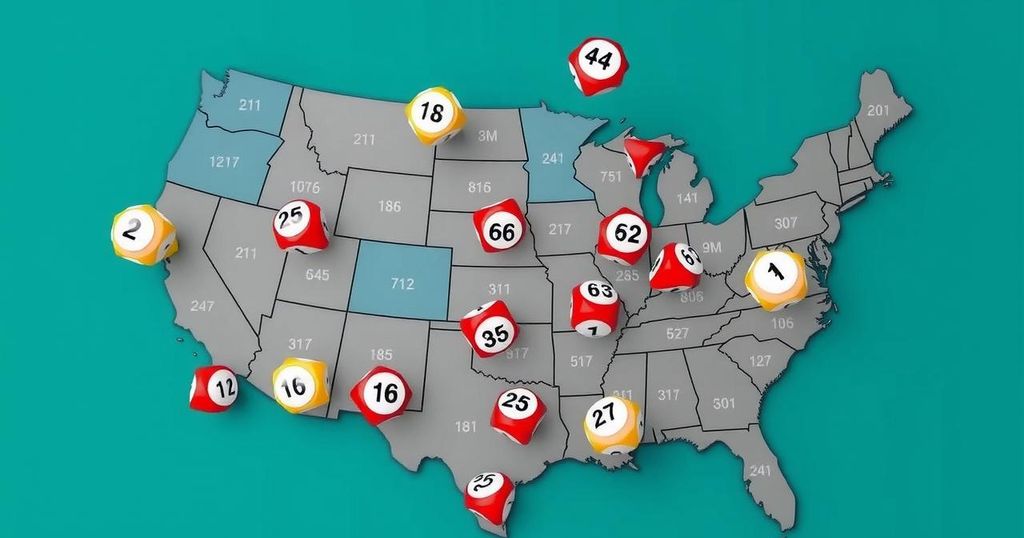Lotteries and Politics: Examining the Role of Luck in American Democracy

The article explores the intricate relationship between lotteries and American politics, highlighting Elon Musk’s controversial sweepstakes during the 2024 election. Despite claims of chance, the pre-selection of winners underscores the manipulation prevalent in campaign financing. Lotteries have evolved from historical public funding sources to contemporary means of generating state revenues amid economic strains, raising concerns about social equity and the role of luck in democratic participation.
In the context of the 2024 election, Elon Musk’s remarkable $1 million daily sweepstakes aimed at persuading voters to endorse the First and Second Amendments highlights America’s complicated relationship with lotteries and gambling in politics. Although presented as a lottery, the political action committee later admitted the winners were predetermined, revealing the manipulative nature of campaign financing in a time when elections have become increasingly commercialized. This incident underscores the impact of an environment rife with voting obstacles and electoral manipulation. The notion of lotteries as a vehicle for raising public funds has historical roots in the U.S., dating back to the colonial era. Initially, lotteries served to support public goods but faced fierce criticism in the early 19th century for their regressive social impact. Despite being outlawed for a time due to widespread corruption, state lotteries resurfaced in the 20th century as a means for states to generate revenue without increasing taxes on their citizens—a trend further exacerbated by economic pressures and austerity measures. Reformers and activists, however, have argued against such practices due to their propensity to deepen existing social disparities. The rise of lotteries aligns with a broader shift towards a gambling culture, permeated by economic uncertainty and a perception that individual luck supersedes collective investment in public welfare. The introduction of the Diversity Visa lottery illustrates how this gambling mentality has even influenced immigration policies, as the allocation of visas became a game of chance amid stringent regulations. This systemic reliance on luck reflects deeper societal insecurities, sowing distrust in social structures and democratic institutions. Presently, despite generating substantial revenues, lotteries serve as an insufficient substitute for essential public services like healthcare, education, and housing. The outcome of the upcoming election may very well hinge on this gamble, as electors grapple with the reality that their lives and political futures may depend upon mere chance. As uncertainty looms over societal and economic conditions, and with dwindling investments in public welfare systems, the gamble of lotteries illuminates a troubling reality; the stakes of democracy itself appear to be dictated largely by luck rather than established governance. A prevailing sentiment emerges that prosperity is no longer a collective venture but rather a series of individual games of chance, amplifying the divides in an already stratified society, thereby leaving everyone to hope that their fortunes do not run out while navigating the complexities of democracy.
The topic of lotteries in the United States reveals a multifaceted historical evolution characterized by economic necessity, public funding, and societal contradictions. The practice initially emerged as a means of financing government ventures but faced scrutiny over issues of fairness and morality. As economic pressures mounted, especially during times such as the Great Depression and subsequent fiscal crises, lotteries re-emerged as states sought alternative methods to bolster public revenues while avoiding tax increases. This practice has, however, drawn criticism for its regressive impact on vulnerable populations and its correlation with rising income inequality. The intertwining of lotteries with political strategies, as seen in recent electoral maneuvers, continues to shape the discourse surrounding modern governance and public policy in America.
The intertwining of lotteries, gambling, and American political processes represents a critical intersection of economic desperation and democratic ideals. As lotteries become a prominent means of funding essential services, the implications for social equity and trust in government are profound. The contemporary political landscape reveals an unsettling trend in which luck and chance dictate not only individual fortunes but also the collective governance of society. With escalating socioeconomic stratification, the challenge remains to restore faith in the democratic process and pursue equitable solutions that transcend mere chance.
Original Source: time.com








